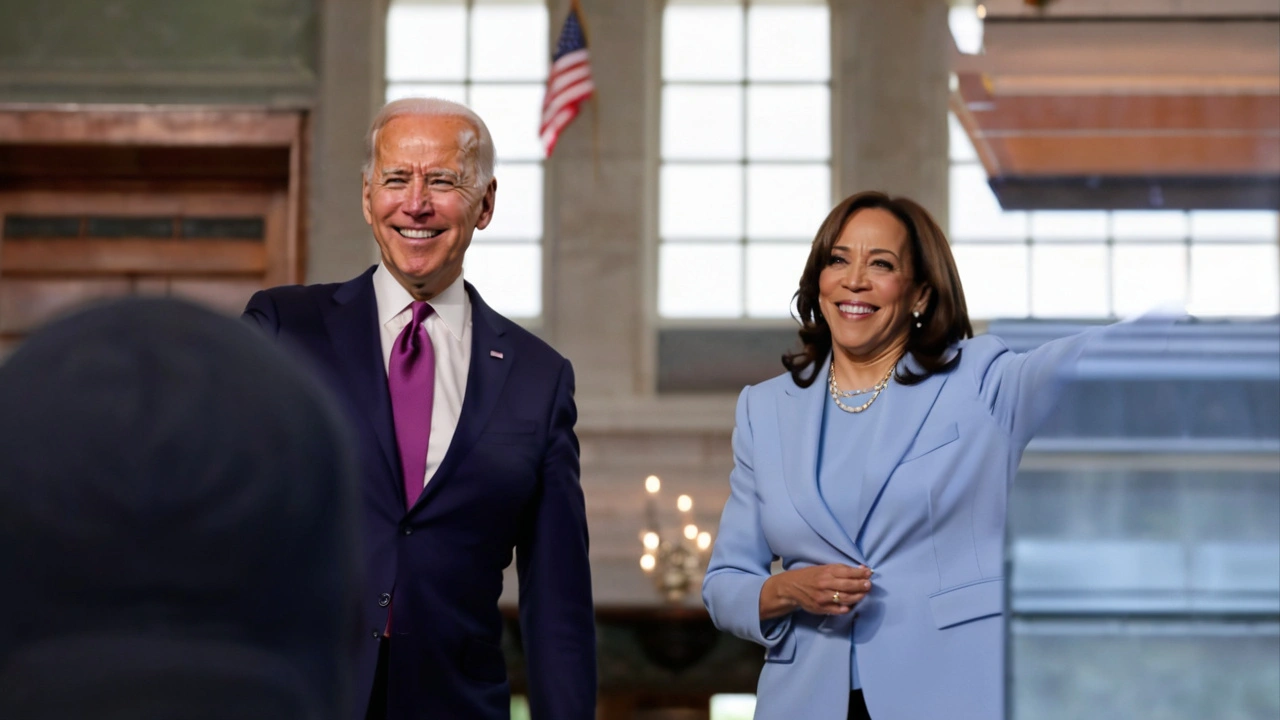Joe Biden Exits 2024 Presidential Race
In a move that sent shockwaves through the political landscape, President Joe Biden has officially announced his withdrawal from the 2024 presidential race. The decision was publicly disclosed on July 21, 2024, stemming from mounting internal opposition within the Democratic Party. Biden's attempt to quell the rebellion against his candidacy proved futile, leading him to step down in hopes of unifying the party for the upcoming election.
Biden, who had been grappling with declining support and increasing challenges to his leadership, made this announcement during a press conference. He expressed gratitude to his supporters and acknowledged the need for a fresh candidate who could better represent the party's evolving vision. His departure marks a significant shift in the 2024 presidential election dynamics, sparking debates and discussions nationwide.
Challenges Leading to Biden's Decision
The road to this decision was paved with numerous challenges. Biden's presidency, while marked by significant legislative achievements, faced criticism on multiple fronts. His handling of key issues such as the economy, immigration, and foreign policy drew mixed reactions. Moreover, a series of strategic missteps and public gaffes further eroded his support base.
Internally, the Democratic Party experienced a surge in dissenting voices questioning Biden's viability as the 2024 candidate. Prominent figures within the party openly called for new leadership, arguing that Biden's continued candidacy could jeopardize the Democrats' chances in the general election. This internal strife reached a tipping point, compelling Biden to reconsider his stance.
The Democratic Rebellion
The rebellion within the Democratic Party was not an overnight phenomenon. It had been simmering for months, fueled by concerns over Biden's age and his ability to connect with younger voters. Progressive factions within the party pushed for more radical reforms and were dissatisfied with what they perceived as Biden's centrist approach.
As voices of dissent grew louder, it became increasingly clear that Biden's path to securing the Democratic nomination was fraught with obstacles. His struggles in galvanizing widespread support within the party added to the mounting pressure. The decision to withdraw ultimately reflects an acknowledgment of these challenges and a strategic move to ensure party unity ahead of the general election.
Vice President Kamala Harris Steps Into the Fray
With Biden's exit, Vice President Kamala Harris has emerged as a prominent figure vying for the Democratic nomination. Immediately following Biden's announcement, Harris began mobilizing her campaign, reaching out to key donors and supporters. In a statement, she expressed her intention to 'earn and win' the Democratic nomination, underscoring her commitment to leading the party in the 2024 presidential race.
Harris's candidacy brings a new dynamic to the Democratic primary race. As the first female vice president and a prominent figure within the party, she has a unique blend of experience and appeal. Her campaign is expected to focus on progressive policies, social justice initiatives, and addressing the pressing issues facing the nation. Harris's entry into the race sets the stage for a competitive and closely watched primary season.
Implications for the 2024 Presidential Election
Biden's withdrawal has profound implications for the 2024 presidential election. It opens the door for new contenders within the Democratic Party to step forward and vie for the nomination. The primary race is likely to witness intense competition as candidates seek to differentiate themselves and resonate with the diverse Democratic electorate.
For the Republican Party, Biden's exit alters their strategic calculations. The GOP had been gearing up for a rematch against an incumbent president, and Biden's withdrawal necessitates a reevaluation of their campaign strategy. Potential Republican candidates may now adjust their messaging and approach, aiming to capitalize on the uncertainty within the Democratic Party.
Public Reaction and Future Prospects
The public reaction to Biden's announcement has been mixed. Supporters who lauded his presidency expressed disappointment but acknowledged the necessity of the decision for the greater good of the party. Critics, on the other hand, viewed it as a long-overdue step, emphasizing the need for fresh and dynamic leadership.
Looking ahead, the focus now shifts to the evolving primary race within the Democratic Party. The coming months will witness a flurry of campaign activities, debates, and endorsements as candidates vie for the nomination. The outcome of the primary will significantly shape the course of the general election, as the Democratic nominee prepares to take on the Republican challenger in November 2024.
Conclusion
President Joe Biden's decision to end his 2024 presidential run marks a pivotal moment in American politics. It underscores the complexities and challenges of leading a diverse and dynamic party in an ever-evolving political landscape. As Biden steps aside, the stage is set for a new chapter in the Democratic primary race, with Vice President Kamala Harris and other contenders poised to chart the party's path forward.
The 2024 presidential election promises to be a closely contested and highly consequential event, with far-reaching implications for the nation's future. As the race unfolds, voters will closely watch the developments, assessing the candidates' visions and priorities for the years ahead. The journey to the White House continues, with new leaders emerging to shape the course of American democracy.

Write a comment